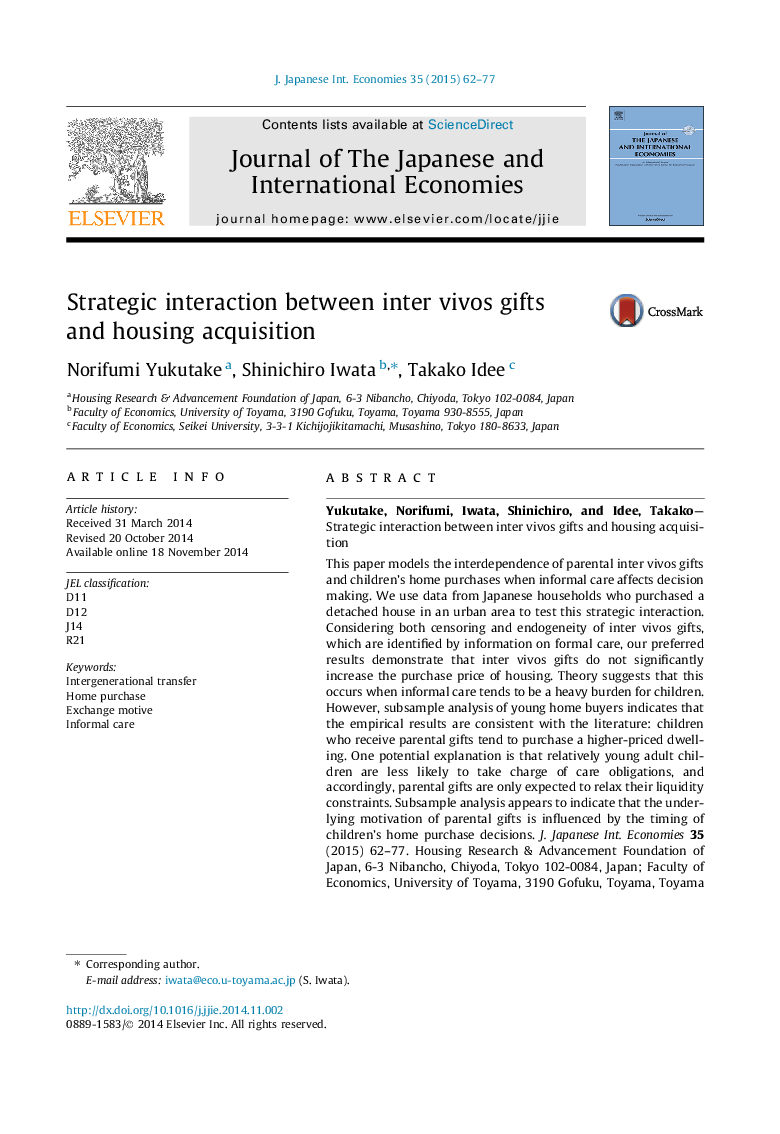| Article ID | Journal | Published Year | Pages | File Type |
|---|---|---|---|---|
| 965197 | Journal of the Japanese and International Economies | 2015 | 16 Pages |
Abstract
This paper models the interdependence of parental inter vivos gifts and children's home purchases when informal care affects decision making. We use data from Japanese households who purchased a detached house in an urban area to test this strategic interaction. Considering both censoring and endogeneity of inter vivos gifts, which are identified by information on formal care, our preferred results demonstrate that inter vivos gifts do not significantly increase the purchase price of housing. Theory suggests that this occurs when informal care tends to be a heavy burden for children. However, subsample analysis of young home buyers indicates that the empirical results are consistent with the literature: children who receive parental gifts tend to purchase a higher-priced dwelling. One potential explanation is that relatively young adult children are less likely to take charge of care obligations, and accordingly, parental gifts are only expected to relax their liquidity constraints. Subsample analysis appears to indicate that the underlying motivation of parental gifts is influenced by the timing of children's home purchase decisions.
Related Topics
Social Sciences and Humanities
Economics, Econometrics and Finance
Economics and Econometrics
Authors
Norifumi Yukutake, Shinichiro Iwata, Takako Idee,
